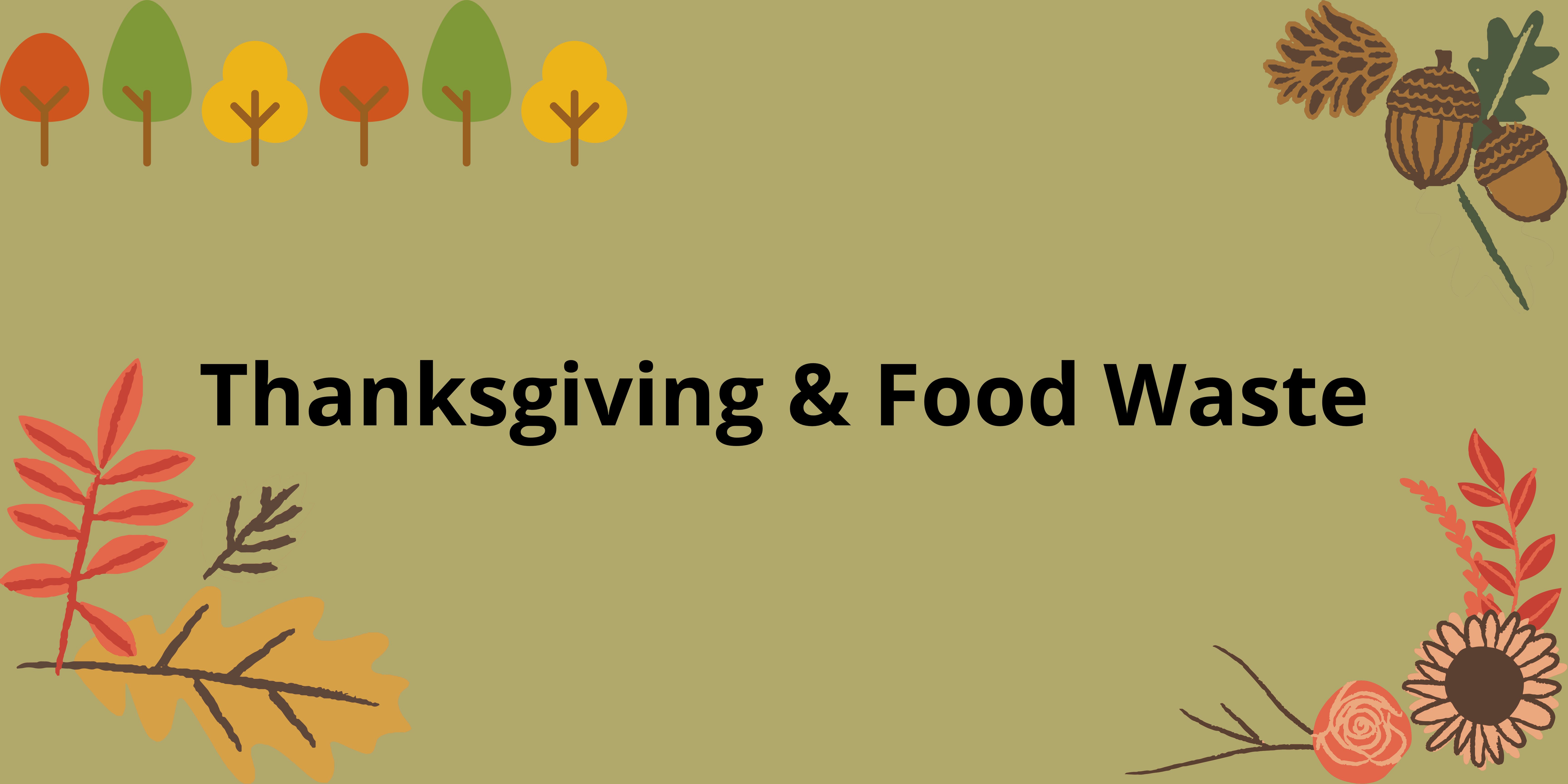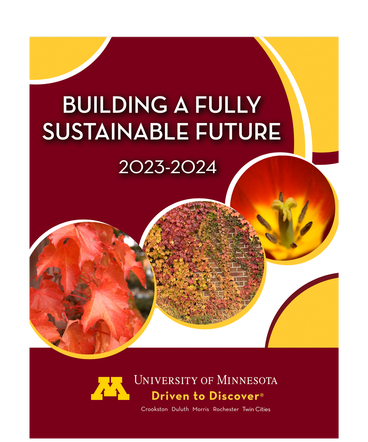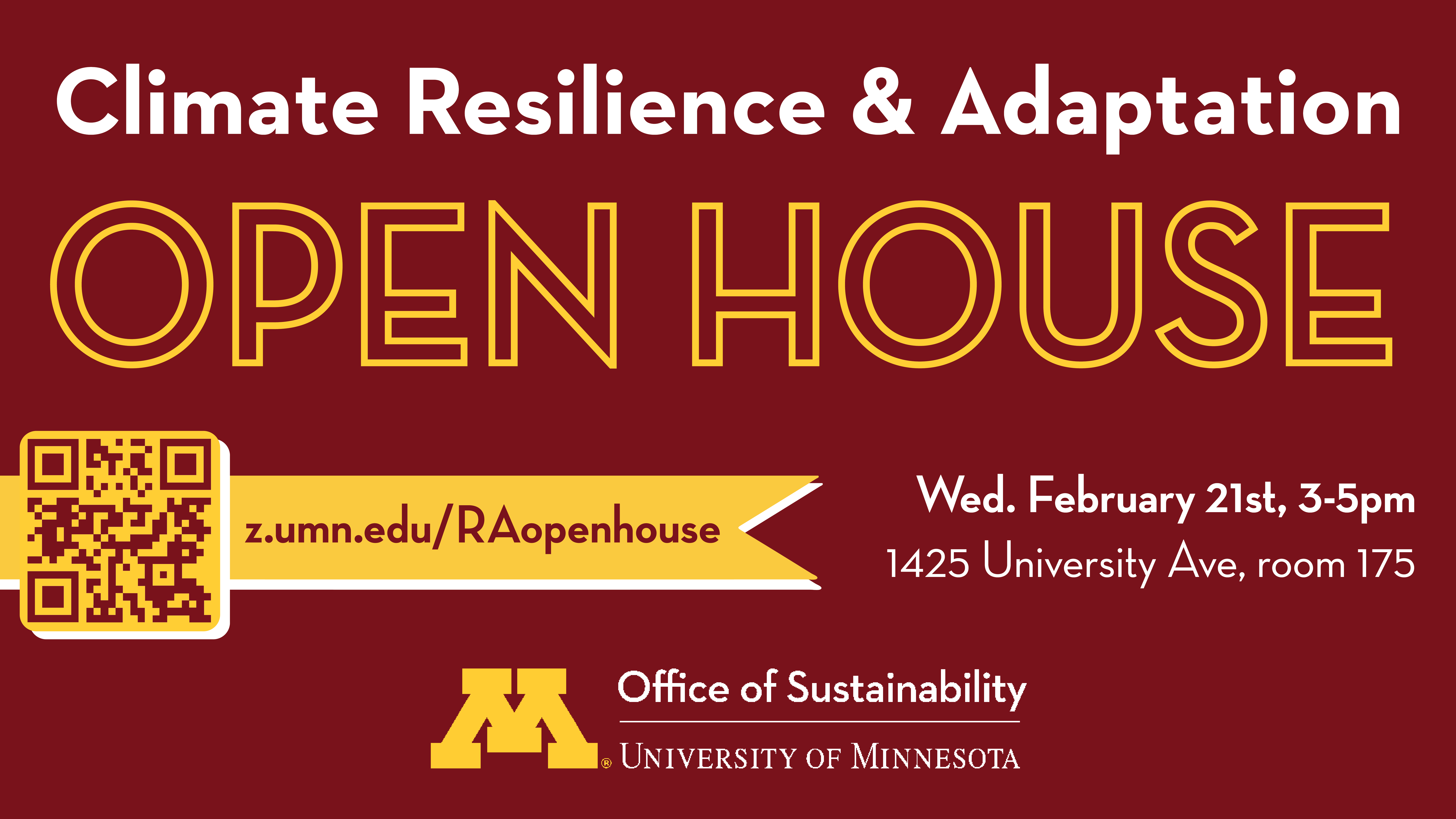
Happy Holidays! Thanksgiving marks the beginning of the holiday season, a season that is usually filled with joy, and oftentimes, food waste.
Food waste is all the food that is fit for consumption but is consciously discarded. Every year, American families waste about 1,160 pounds of food, especially around Thanksgiving where an estimated 305 million pounds of food are wasted from Thanksgiving dinner alone.
We need to be conscious of our consumption and waste of food, as it is a precious resource that takes a lot of energy and resources to create. When food is wasted, it is a social and environmental concern. We not only waste the food itself, but all the energy, land, labor and water it takes to grow, harvest, transport, and package the food is also wasted. Further, if food goes to the landfill and rots, it produces methane, which we all know as the harmful greenhouse gas that is more potent than carbon dioxide. A good amount of human-caused greenhouse gas emissions, about 7%, could be eliminated if we stop wasting food! Wasting food is also wasting all the money that was spent and could have been used elsewhere.
Food waste can be considered a social and humanitarian concern as there are hundreds of hungry and undernourished people who would gladly accept the safe food that would otherwise be thrown away. About 10% of all US households are food insecure, which will only be worsened by inflation and supply chain issues that are currently happening. The average family's Thanksgiving food waste could feed people in need for an entire weekend.
It is up to you as the consumer to reduce your food waste! This Thanksgiving, cut down on food waste by:
- Planning ahead and only buying what you need. If you know your Thanksgiving meal will only have 6 people, there is no need to buy the turkey that serves 12. Further, if you plan out your meal to only make what will actually be eaten, you will reduce your food waste.
- Save scraps for future cooking while making your meal. Scraps, like vegetables, peels and meat trimmings can be used later for broths, soups, and other dishes to reduce food waste.
- Store or donate leftover food. If you properly store or freeze leftover food, it will stay edible for much longer and give you more time to eat it and reduce waste. If you have extra, safe, and fresh (or frozen) leftovers, consider donating them to your local food banks to help people in need. This can reduce food insecurity and food waste! Visit Feeding America website for more information.
- Get creative with your leftovers. Turn that turkey and potatoes, or whatever leftovers you have, into a brand new meal! Try to make homemade turkey stock with the bones, chili, or soup among many other easy recipes. Add your own touch of creativity to reduce food waste.
- Compost any food scraps or leftovers that have gone bad. Composting helps to improve soil health and allows for your garden to prosper! Composting reduces the amount of food that ends up in landfills and eventually contributes to climate change. If you do not have your own compost set up, have no fear! There are local community composting or compost collection/drop off sites. Composts are easy to get started, check out these composting resources from the US Environmental Protection Agency!
The EPA provides the “Food Recovery Hierarchy” graphic to explain ways to handle excess food from the least preferred and most harmful, like ending up in a landfill, to the most preferred and least harmful, like reducing the amount of extra food wasted. These methods include:
- Landfill or incineration which should be viewed as a last resort for unused food
- Composting food waste to produce organic matter that is used to naturally fertilize the soil
- Industrial uses like donating used fats and oils to make biodiesel fuel
- Feeding animals by donating food scraps and waste to local farmers
- Feeding hungry people by donating extra good to community sites
- And lastly, source reduction which is the earliest prevention of food waste by reducing the overall volume of food produced.
When deciding where to purchase food for holiday meals, consider supporting local and/or Indigenous food vendors! Whether it's supporting impactful organizations with your time or money, educating yourself on Indigenous issues, or doing online shopping from Native-owned businesses, there are many ways you can use this Thanksgiving season to support Native American communities!
This Thanksgiving and holiday season, think about the impacts on the environment and try to reduce the amount of food that will be thrown away. As the impacts of climate change are worsening, it is up to all of us to reduce our carbon footprint and take necessary steps to change unsustainable consumption and wasteful habits.
Sources:
Why should we care about food waste? | USDA
Tips to Reduce Food Waste at Thanksgiving | USDA
Fight climate change by preventing food waste | Stories | WWF.
Food Waste | The Nutrition Source- Harvard
Sizing up America's Thanksgiving food waste problem
How You Can Support Indigenous Americans This Thanksgiving - Thrillist



